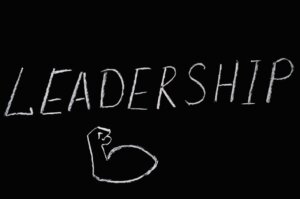What separates good leaders and masterful ones? Between those who just meet their organization’s and team’s expectations, and those who invite transformation into their organizations and teams? Between those whose services are viewed as a commodity and those who are known to be indispensable? The differentiator? The spirit of the fool.
Surrendering to Your Fool
Masters of all disciplines willingly embrace what George Leonard describes in his book Mastery as, the spirit of the fool. If you’re a leader who wants to have impact, it’s time to learn to embrace the spirit of the fool.
(Noteworthy point — this is different than the spirit of being foolish – showing up uninformed, unprepared, or trying to claim expertise outside your purview are several foolish behaviors of a leader).
The spirit of the fool is the willingness to be clumsy and awkward as you relinquish a hard-won competence in favor of a higher skill. It is the willingness to tread into unknown waters to courageously implement innovative ideas.
The Four Steps to Finding Your Fool
We resist embracing the spirit of the fool because it’s uncomfortable – it makes us feel silly and vulnerable as we flounder between competencies. Yet, just as building the strength of a muscle takes time, tenacity and practice, so does becoming comfortable in this liminal – and essential – space.
Here are four steps to finding and celebrating your inner fool:
Step 1: Come from Curiosity
The journey of the master is never complete nor should it ever be stagnant. Curiosity is the hallmark of one’s joyful desire to be a continual learner, always questioning if there is a better, more precise, more refined or more profound way.
Step 2: Create Emptiness
Like a full vessel with no room for more water, a full mind has no room for new ideas. Creating emptiness is an essential practice on the path of mastery. Implement a regular practice during which you to turn down the noise, clear the debris, and find the calm, fertile, still-point within yourself from which all creativity and innovation spring.
Step 3: Cultivate the Beginner’s Mind
The ‘beginner’s mind’ frees you from expecting an outcome based on what you have experienced in the past, and allows you to continually see possibilities in the current circumstances. It allows you to be innovative and dynamic in support of your team and its goals, instead of studied and rote.
Step 4: Take Courageous Action
It is one thing to think about being bold, innovative, and reaching for the next level of skill on your path to mastery. It is another to bare your vulnerable and inspired self to your colleagues and clients through action. THIS is where the spirit of the fool is most alive.
In an old parable, you have a cup in your hand and a quart on the table. In order to grab the quart, you must be willing to let go of the cup.
Are you willing to let go of the cup?
 Sections of this topic
Sections of this topic
















